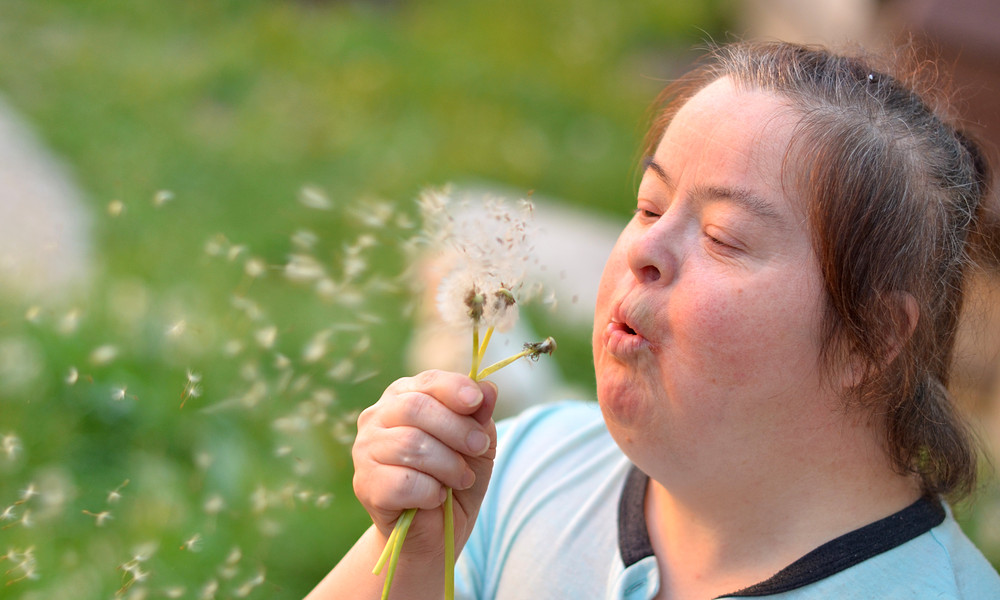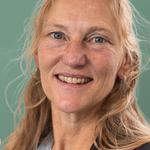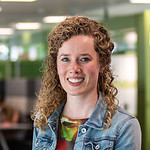With combined forces towards a healthy lifestyle for people with disabilities
- Research stories

In order to live a healthy life, people with (moderate to very severe) intellectual disabilities need support from their environment. But how do you bring this about? This is the key question that knowledge institutions, schools and healthcare organisations have been asking themselves for the past five years within the research network of De Krachten Gebundeld (With Forces Combined).
It all begins with awareness, according to Hanze professor Aly Waninge; PhD student Annelies Overwijk; occupational therapist and movement researcher Stéfanie Anisuszzaman and behavioural scientist Annette Nugteren.
If you eat healthy food and exercise enough, you feel better, a principle many people would agree with. But what is healthy food exactly and what is enough exercise? People have different opinions about this, also people who work in healthcare organisations. Aly Waninge: ‘There is so much information out there, so what is the truth? And how do you get everyone in a team to work according to the same principles? It is very important to make clear decisions together concerning clients’ food and exercise.’ Aly Waninge is professor of Participation and Health of people with an intellectual and visual disability. She is also project leader of the project De Krachten Gebundeld, in which she worked together with Annelies Overwijk. Annelies was a PhD-student for the research group Healthy Ageing, Allied Health Care and Nursing of Hanze UAS. She conducted her research within the project.
A total of nineteen healthcare organisations participated in the research project. Waninge, Overwijk and their fellow researchers first made an inventory of what carers need in order to support people with an intellectual disability to live a healthy life. It turned out that there were many questions in the teams of the participating organisations concerning food and exercise. Stéfanie Anisuszzaman and Annette Nugteren noticed this as well. They both work at Zorggroep ’s Heeren Loo. ‘In our regular meetings there were always many practical questions about food and drink,’ they explain. ‘Some clients gain too much weight but there are also those who lose too much weight. You should also be careful about how the clients process the food, and in addition you want to distribute their energy balance over the day.’ And exercise is an important theme at ’s Heeren Loo as well. Anisuzzaman: ‘Especially for teams who have many clients in wheelchairs it is a challenge to make sure they get enough exercise.’
Plenty of questions and plenty of motivation, clearly, but many supervisors of the participating organisations felt they lacked the necessary knowledge and skills to start working with this. Annelies Overwijk: ‘And yet our research into the behavioural changes techniques they used showed that they were already doing much to stimulate a healthy lifestyle for their clients. They just weren’t aware of it. And this awareness about their own actions may be just as important as the awareness about what healthy living actually is.’
With the outcomes of the first research phase a training was created to give carers the tools to support a healthy lifestyle for their clients. These tools are an e-learning module about healthy living and three team meetings about the carers’ own thinking and actions. Subsequently they discuss how to help people with intellectual disabilities to live a healthy life and the way the environment and various tools can support this. These so-called practical products have been implemented in four healthcare organisations during the project and were later used in four new organisations as well. Aly Waninge: ‘The various elements of the training are freely available on the project website, so perhaps there are even more organisations that are using the tools already.’
’s Heeren Loo (in Bedum and in Noordwijk) is one of the healthcare organisations that made use of the training. ‘It is a complete package with ready-to-use materials. We looked at them critically and dealt with it in a creative way, so it connects well with the needs of our own teams,’ says Annette Nugteren. The training provided a rich breeding ground for discussion and action. Anisuzzaman: ‘So far we had three team sessions, and in Bedum we started with the theme of food. It turned out there was much to discuss. And in Noordwijk we talked about both themes, so it can vary per team.’
At ’s Heeren Loo the training helped to give all team members a voice. And these voices were used to undertake action. Nugteren: In a large group it may happen that a few people do all the talking and the rest may seem less involved or may see fewer opportunities to have their own input. You can change this by having the discussions in smaller sub-groups.’
Eventually the e-learning module and the meetings resulted in concrete actions that the teams could work with. ‘One of these actions was to involve a dietician to take a look at the monthly shopping list. Another was to move the time when clients ate fruit from morning to afternoon. And there was the idea of paying more attention to the experience of the meal itself by having a clear start and an ending to the meal,’ explains Anisuzzaman. These are relatively simple changes that can have a great effect on the daily pattern, the energy balance and the familiarity for clients, both professionals agree. ‘Each action can be tried out for a few weeks, say six weeks, or until the next meeting. And based on this it can be continued or not. That is team building in action,’ Nugteren says.
Nugteren and Anisuzzaman intend to organise three more team meetings in the Bedum region in 2022. These will have as subject physical exercise. Time is a restricting factor, they say. ‘Of course, it takes time to work on this theme, follow the e-learning modules and organise the team meetings. But if all goes according to plan, it will eventually save time,’ Overwijk says. In addition to implementation in healthcare organisations, the idea is that the practical products will also be used in teaching. This way the future-professional already acquires the necessary knowledge and skills in the area of food, physical exercise and behavioural changes. Aly Waninge: ‘The Alfa-college was one of the partners in De Krachten Gebundeld. Healthcare students helped during the early stages of the research, for example with the behaviour change techniques.’
The research network of De Krachten gebundeld will continue after this project has been completed; an application has been made for a follow-up subsidy. This project would continue to build on the products that have been developed for De Krachten Gebundeld and also continue to develop the exisiting knowledgebase.

Lector Participatie en gezondheid van mensen met een verstandelijke en visuele beperking
Petrus Driessenstraat 3, 9714 CA Groningen

Onderzoeker Lectoraat Healthy Ageing, Allied Health Care and Nursing
Petrus Driessenstraat 3, 9714 CA Groningen
How satisfied are you with the information on this page?